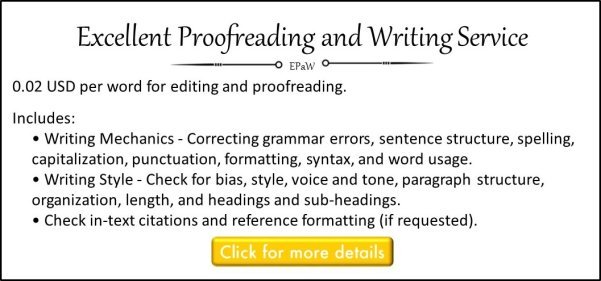Website Writing Techniques
Starting to write for the web can be a daunting prospect especially if you haven’t written much in the past and don't know many website writing techniques. However it isn’t really that difficult.
I’ll present several website writing techniques and tips on this page, which you should try to remember and use when writing website content.
Also remember the basic writing process of:
- Plan – Write – Finalize

You plan first and collect all your thoughts in note form, so you know what you'll write.Then you write. This'll involve several drafts. So don’t worry if the first draft isn’t good. It can be improved, and will be improved. Each time you finish a draft, read it and then make changes, it’s getting better. After writing a few pages for your site you should be able to get down to just a few drafts of each article.
After writing you finalize. Writing is mainly to do with producing good content that's easy to follow. In the finalizing stage you'll be perfecting the language used, the words and grammar. Here you check for spelling mistakes, typos and incorrect grammar. See the proofreading section and the website proofreading page if you need more help with this part.

Website Writing Techniques and Tips
1) Website writing is different from writing for print
The first website writing technique is more a general observation that relates to all the other following tips and techniques.
Website writing is different. What you learnt at school and how you might write at work are different from web writing. Remember this.
2) People don’t read every word
On the web people scan content. They don’t start at the first word and read each one until the end. They read fast, just trying to find the main points.
This means you need to highlight your main points. Put them is small paragraphs,make the main words stand out (use bold or a different colour); this way your readers’ eyes will be draw to the words that you want them to read, so they can get the main points from your writing without reading it all.
3) Simple language
Keep the words and sentence structures simple. People read fast and scan the text. They won’t go back and reread a poorly constructed sentence or stop to look up a new word they don’t know.
You need to help your audience understand the content you’re presenting. Do this by making the language as easy as possible for them.
Your content can and should be advanced and interesting but the language used to present it should be simple and easy to understand for everyone reading your site.
4) Not too much on each page
Each webpage should focus on one topic. Keep each page focused.
If you've too much information for one page split it over several pages. This'll help your readers. A page that seems to go on and on forever can be off putting.
Split it and link to the next section of the page at the end of the first one.
5) Plenty of links
In a website your content is spread over many pages. Make sure that your visitors can find the next bit of information they need.
Do this by having plenty of internal links. Whenever you mention one of your other pages or talk about a topic which is presented in more detail elsewhere on your site link to the other page.
Websites aren’t like a book where you can easily flick through all the pages to find what you need; you've to follow links to the pages. Include these as part of good website writing technique. Give your readers plenty of links to help them find all your great content and information.
6) Know what you can and can’t do
You can’t do everything and you can’t provide every single piece of information that your readers might want on your site. No matter how narrow the niche is that you've chosen to write your site about, it'll always start to expand, if you let it. You’ll need to explain something which is relevant to understanding your topic but not directly a part of your niche.
Give your readers this information by linking to another site. Find a site that provides good information and link to it to add value to your readers’ experience.
Make the link open in a new tab or window; this way your site will still be there to remind them what they were doing first.
7) Check all links
Following on from the above website writing techniques 6 and 7, one of the most important website writing techniques is to check that all your links work. That’s both internal and external links.
Search engines don’t like links that don’t go anywhere. So regularly make sure all your links are working and pointing where they should.
8) Keywords
Keywords are important. Not so important that you should spend hours and hours optimizing your pages for search engines, but important enough to pick good ones and use them well.
Pick one main keyword for each page.
It should appear fairly often in the text, but not too often.It should appear in one or two links on the page.It should appear in the on page title.It should appear in the page description.Doing this much with your keyword should be enough. Don’t waste your time with further SEO. Many people think that website writing technique is all to do with optimizing keywords, it isn't.You can spend your time much more profitably writing good new content rather than trying to optimize every page as far as it will go.
9) Easy to read pages
Your pages should be easy for your readers to look at. That means use sub-headings to divide your page up into sections. They should be clear and descriptive of the information in the next section of your page. Signpost all the information on each page with sub-headings to help your readers. Also use short paragraphs to highlight and break up your information into easy to understand parts. Each page needs to be fairly short and to the point. Don’t waffle and don’t ramble on in your writing without coming to a conclusion and the end at some point. Keep your writing concise. Most people have short attention spans when reading content on the internet. Make sure they can finish each page in a short time. If you incorporate these three things into your website writing technique your pages should be easy to read, which will please your readers.
10) Relevant, up to date content
Make sure that what you post to your site won’t be out of date in a month. It takes time and effort to write a good webpage. Don’t waste your time by making a page that no-one will want to read in a month or two because all the information is out of date. People come to your site for useful information. If the information is no longer useful, if it is out of date, they'll stop coming. So save yourself time and work by writing content that'll have a long shelf life. You’ll need to keep your site up to date, but if you only need to update a page once a year it’s much less work than having to update it once a month.
11) Presentation
The visitors to your site need to be able to read your content. That means that the text size can’t be too small. Also the colour of the text needs to be readable against the background colour you choose. A pale background and dark or black text works best. This produces a good contrast and is easy to read. In addition you should use a san serf font as these are the easiest to read on a computer screen.
12) Best first
A popular and effective website writing technique is to put your best content first. Use this to draw your reader into your page. The first thing they read should be interesting. This'll mean that they remain on the page and read more of your site. This often means that you'll present your conclusion or main point first when writing for the web. Then use the rest of the article to backup what you've said at the start.
13) No sales pitch
Don't start trying to sell something before you've gained the trust of your readers. Present your content first and then once you have impressed your audience with this, start to sell your product or service afterwards. Have a specific page or pages where you do your selling. Link to those pages from your content but keep the selling out of the content pages.
14) Write with personality
Find a way to get your personality to show through your writing. Your readers will be able to tell that you're an individual and get to know you if they feel that some of your personality is in your writing. They'll then be more likely to want to buy something from you, no matter what you're selling.
15) Use different browsers
This one isn't really a website writing technique but rather something you should remember to do once you have finished writing your webpage. There are many different web browsers out there. They all work slightly differently. Down load and keep the main ones on your computer. Then look at your website using all of them. Make sure that all the pages look the same when displayed in all the different browsers.

Return to Website Writing from Website Writing Techniques
Return to Excellent Proofreading and Writing Homepage from Website Writing Techniques



By Jolyon Dodgson, copyright © 2011-2020.
Excellent-Proofreading-and-Writing.com - Proofreading and writing help for excellent first impressions.





New! Comments
Have your say about what you just read! Leave me a comment in the box below.